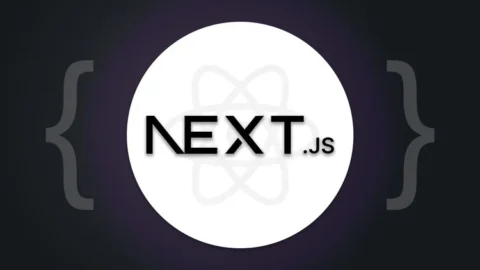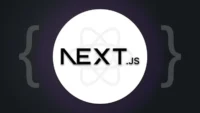
81% Off Next.js 15 & React – The Complete Guide Udemy coupon

Copy this code and use at checkout
81% Off Next.js 15 & React – The Complete Guide Udemy coupon
Expires: No Expires
Submitted: 3 months ago
Main Themes:
The course focuses on empowering React developers to build “highly dynamic, super fast and SEO-ready React apps with React & NextJS!” It emphasizes Next.js as the go-to framework for taking React applications to a “production-ready, fullstack-capable” level. A central theme is the exploration and practical application of Next.js’s core features, including its two distinct routing approaches: the App Router and the Pages Router.
Most Important Ideas & Facts:
1. Next.js as a Production-Ready, Fullstack React Framework:
- The course positions Next.js as a crucial step for React developers, addressing limitations of pure React for real-world, production-grade applications.
- “Next.js is the production-ready, fullstack-capable framework for ReactJS.”
- It facilitates the creation of “fullstack React apps (frontend + backend code combined in one project),” allowing developers to “Blend client-side and server-side code and build a NodeJS-based API side-by-side with your frontend React apps.”
2. Key Benefits of Using Next.js:
- Performance & User Experience: Next.js enables “built-in server-side rendering and page pre-rendering,” leading to “great user experiences.”
- SEO Friendliness: It simplifies the creation of “search engine friendly (SEO!) React apps.”
- Simplified Fullstack Development: Building both frontend and backend within a single project is “extremely easy” with Next.js, including “handling data submissions via Server Actions.”
- Authentication: Next.js “simplifies that as well and makes user signup, sign in and session management very convenient.”
3. Dual Routing Approaches: App Router vs. Pages Router:
- A core distinction and learning objective of the course is understanding and implementing both the “App Router” and the “Pages Router.”
- “This course covers both the NextJS ‘App Router’ & the ‘Pages Router’ – two different approaches for building fullstack apps with React!”
- The course explicitly explains “what these two approaches are, why two different approaches exist and how each approach works!”
4. Comprehensive Feature Coverage: The course promises to cover a wide array of Next.js features, including:
- Routing: “Working with file-based routing,” “Adding dynamic routes and catch-all routes.”
- Rendering: “Implementing different forms of page pre-rendering and server-side rendering.”
- Data Management: “Working with data and adding data fetching + pre-fetching to your apps,” “Handling form submissions with Server Actions,” and “Handling File upload.”
- Optimizations: “Adding optimizations like metadata to pages,” “Optimizing images with the NextJS Image component.”
- Fullstack Capabilities: “Building fullstack apps with API routes or Server Actions.”
- State Management & Authentication: “Managing app-wide state with React context (in NextJS apps),” “Adding authentication to NextJS apps.”
- Server Components: Getting “started with React Server Components, Client Components, data fetching & more!”
5. Target Audience and Prerequisites:
- The primary target audience is “React developers who want to take the next step and build production-ready React apps” and “React developers who aim to build fullstack React apps.”
- “ReactJS knowledge is strongly recommended,” but the course includes a “complete React refresher module.”
- “NO prior NextJS knowledge is required,” making it suitable for beginners to Next.js.
6. Course Structure and Learning Aids:
- Hands-on Learning: The course emphasizes practical application with “multiple real projects where all concepts will be applied step-by-step.”
- Flexible Learning Paths: Includes a “NextJS Summary” module for quick refreshers or an accelerated learning path, allowing users to “just take those summary modules (and skip the rest for now) to learn about all the core features in as little time as possible.”
- Extensive Content: Offers “40 hours on-demand video” and “36 articles.”
7. Instructor Expertise:
- Maximilian Schwarzmüller is a seasoned web developer with experience across backend (PHP, NodeJS, Python) and frontend (React, Angular, VueJS) technologies.
- He is also an experienced instructor with “more than 2,000,000 students on Udemy” and a track record of “many 5-star rated courses.”
- His background as a “self-taught developer” informs his teaching approach, allowing him to “focus on the most relevant key concepts and topics.”
Frequently Asked Questions
What is Next.js and why is it recommended for React developers?
Next.js is a production-ready, full-stack framework for ReactJS, designed to enhance React applications with built-in server-side rendering (SSR), page pre-rendering, and simplified full-stack development. It’s recommended for React developers because it addresses common limitations of using React alone, such as improving user experience, optimizing for search engines (SEO), and streamlining the integration of frontend and backend code within a single project. Its growing demand also makes it a valuable skill for career advancement.
What are the “App Router” and “Pages Router” in Next.js, and why are there two approaches?
The “App Router” and “Pages Router” are two distinct approaches for building full-stack applications with Next.js. The course covers both, explaining their differences and why they exist. While the specific nuances of each aren’t fully detailed in the provided text, the existence of two approaches suggests different philosophies or optimizations for handling routing and application structure, allowing developers to choose the method best suited for their project needs. The “App Router” is presented as the latest version’s approach, with the “Pages Router” being a more established alternative.
What key features does Next.js offer for building modern web applications?
Next.js offers a comprehensive set of features for building modern web applications. These include file-based routing (including dynamic and catch-all routes), various forms of page pre-rendering and server-side rendering for performance and SEO, robust data fetching and pre-fetching capabilities, simplified handling of form submissions via Server Actions, file uploads, image optimization with the Next.js Image component, and seamless integration of authentication. It also facilitates building full-stack applications by blending client-side and server-side code within one project, including the creation of NodeJS-based APIs.
Is prior Next.js knowledge required to learn the framework through this course?
No, prior Next.js knowledge is not required. The course is designed to take students from a Next.js beginner to an advanced level, starting with the very basics. While basic React knowledge is strongly recommended, the course includes a complete React refresher module to ensure all students are on the same page.
How does Next.js simplify full-stack development?
Next.js greatly simplifies full-stack development by allowing developers to combine frontend and backend code within a single project. It makes it “extremely easy” to blend client-side and server-side code, enabling the creation of a NodeJS-based API alongside the frontend React application. This integrated approach streamlines the development process, making it convenient to handle data submissions via Server Actions and manage features like user authentication, signup, sign-in, and session management.
What kind of projects or applications can one build after completing this course?
After completing this course, one will be well-prepared to build their own Next.js projects from the ground up. This includes creating highly dynamic, super-fast, and SEO-ready React applications. The course emphasizes building real, production-ready projects, suggesting that participants will gain the skills necessary to develop complex and professional web applications.
What learning resources and support are included in the course for ongoing learning?
The course includes a variety of learning resources and support for ongoing learning. Besides 40 hours of on-demand video and 36 articles, it offers full lifetime access and access on mobile and TV. Crucially, it provides a “NextJS Summary” module for the Pages router and a “NextJS Essentials” module for the App router. These summary modules allow students to quickly refresh their knowledge or explore core features without re-taking the entire course, serving as valuable references for future use.
Who is the ideal audience for this Next.js course?
The ideal audience for this Next.js course includes React developers who want to advance their skills and build production-ready or full-stack React applications. It also caters to web developers in general who are interested in working with one of the most popular and in-demand tech stacks. The course is suitable for those seeking to enhance their existing React knowledge and leverage a powerful framework for building robust, performant, and SEO-friendly web solutions.


Loading comments....